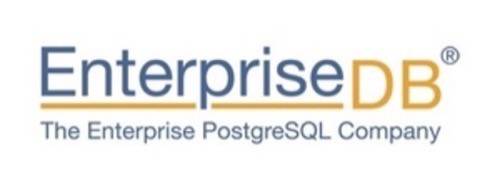
It’s been just under seven months since Red Hat became the world’s first $1 billion open-source company. Now the question is who will follow suit and become the next open source company to hit this milestone?
Before sorting through the list of likely candidates, it’s important to define what we’re talking about when we say “$1 billion company.” Primarily, we’re talking actual annual revenue, not market valuation. That’s a key difference, since under the valuation definition, Red Hat would not have been the first billion-dollar open source company; MySQL AB would have had that distinction, when Sun Microsystems bought it for $1 billion in 2008.
And, when we’re talking open source, the idea is a company that bases its business on the sale and distribution of open-source software. Things get a bit tricky here, since many companies could be assigned the “open source” moniker – and some might argue against it. This is particularly true of companies that follow the so-called “open core model,” which typically release a free version of the software as a “community” edition as well as a more feature-rich but closed edition that’s available for a licensing fee or support subscription.
Red Hat is not open core, because even though it sells a “closed” enterprise version, Red Hat Enterprise Linux, and helps distribute a free version of the product, Fedora, the truth is that the source code for Red Hat Enterprise Linux is still freely available, so one can, if desired, use RHEL without support.
While it would be possible to reject open-core model companies, the fact is that this would sharply limit the field of potential candidates for the next $1 billion open source company, so I’m going to keep them in mind and note them as such.
Our three top candidates – all private companies – definitely vary in the kind of software they offer, but each one has an opportunity to be the next open-source company that crosses the billion-dollar line.
The Database Candidate
With all the hullaballoo about Big Data (see next candidate), it’s important not to forget there are still a lot of fast and flexible offerings in database-land that still follow the old rules of managing data. Big data doesn’t mean that relational databases are dead; in fact, such databases are more important then ever.
EnterpriseDB is in the business of distributing commercial products built on one such open source database, PostgreSQL, a direct competitor to the MySQL mentioned earlier that was snatched up by Sun and subsequently acquired by Oracle.

On its own, PostgreSQL (or Postgres as geeks call it), is hot right now. The open source Postgres is getting a lot of new features and the pace of development is perceived as faster than its MySQL counterpart. Plus, there is a definite interest in Postgres driven by a movement away from MySQL. While MySQL is still very powerful software, there is a lot of tension in the marketplace about Oracle’s stewardship of that project, since Oracle dropped the ball on several of the open source projects it acquired from Sun and many feel that eventually MySQL will suffer from the same problem, with Oracle either not pursuing development as much as it could or (as some fear) closing MySQL altogether.
While MySQL’s loss is PostgreSQL’s gain, Postgres is getting attention on its own merits. EnterpriseDB, which offers an enterprise version known as Postgres Plus, is making big inroads with customers like Sony Entertainment.
Data on a smaller scale will always be more prevalent than Big Data, which means Postgres and the vendors that package it have a nice, wide market into which to play. That gives EnterpriseDB a clear path to becoming the first $1 billion open source database company.
The Big Data Candidate
Nevertheless, you can’t ignore the hype… Big data is a big driver for commerce right now, and any big data vendor has to be considered for billion-dollar revenue status.
The technology that’s leading the big data charge is the open source data framework known as Apache Hadoop. Hadoop is not a database, but rather a distributed storage tool that enables programmers devise jobs in Java code to search for desired information – without formal database structure.
Hadoop is not the only big data tech, but right now it’s the top technology in the sector. And right now the biggest Hadoop company is Cloudera.

Though MapR and Hortonworks are strong Hadoop contenders, Cloudera has managed to establish an early lead in this sector. Cloudera has developed its own tools to make it easier to seek information from Hadoop stores and is building a rich partner ecosystem to enable different applications of Hadoop-stored data.
If Hadoop continues its rocket-ship rise, it’s not hard to envision Cloudera becoming the first $1 billion open source Big Data company.
The Cloud Computing Candidate
In the world of open source cloud computing, OpenStack is the name that gets the most attention, thanks to the combined marketing prowess of Rackspace, HP, Dell and Red Hat, just to name a few.
But OpenStack is not a company or even a product – it’s a project. Eventually, one of the OpenStack vendors may come up with a commercial product and run with it, but if its someone like Red Hat or HP, they’ve already made their mark. Piston Cloud or SUSE may also succeed as billion-dollar candidates, but right now the OpenStack system is a free-for-all and no one seems to have a commanding lead.
So I’m betting on an open source cloud player that’s not even in the OpenStack ecosystem: Eucalyptus.

Eucalyptus gets the nod because of OpenStack’s lack of product and the fact the other open product in this space, CloudStack, has Citrix as its flagship commercial vendor and it’s not really an open source company. Eucalyptus also gets marks for being very well connected to the Amazon Web Services ecosystem. While you may argue that sticking to AWS frameworks is really not all that open (in fact, I have made that very argument), there’s no denying that AWS is killing in this space and a lot of customers interested in private or hybrid cloud computing are very content to keep swimming in Amazon’s pond.
But there is more to Eucalyptus than being in the right place at the right time. It has got a whip-smart team, led by Marten Mickos, who – in one of those “small world” things – was the CEO of MySQL AB, the same company Oracle now has in its portfolio and was valued at $1 billion upon acquisition.
With all of these stars aligned, Eucalyptus could soon be the first billion-dollar open source cloud computing company.
Sure, other candidates may be in the running for the next billion-dollar open source company. And there is always a chance that someone new, like Big Switch Networks and its virtual networking systems, could come out of nowhere and snatch the title.
But these three candidates, based on what I see right now in the open source world, are presently the most likely contenders for becoming the next $1 billion open source company.
Lead image courtesy of Shutterstock.





















